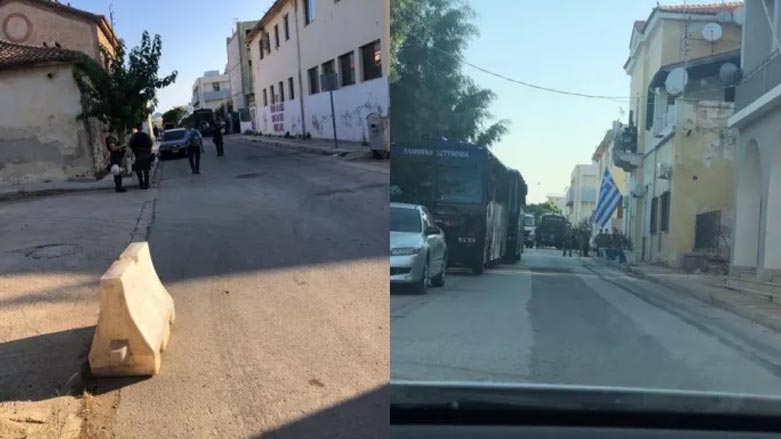Greece clears historic Kurd shelter slated for demolition

Greek police said Wednesday that they had cleared a condemned building near Athens where Kurdish refugees have lived for decades, a move criticised by rights groups.
The police said they had transferred 26 men, eight women and 19 children from the port town of Lavrio to other facilities run by the Greek migration ministry.
Officials noted that the building, which had originally housed refugees from the former Soviet Union in 1947 before being used in the 1980s to accommodate Kurds fleeing Turkey, was slated for demolition.
"A small earthquake could have brought down the building, crushing the residents," Lavrio Mayor Dimitris Loukas told reporters at the scene.
Speaking through a translator, a Kurdish representative told reporters that police had "broken down all the doors and violently entered rooms" to clear the residents.
The police statement said the operation was conducted "calmly and there was no resistance".
The Kurdistan cultural and democratic centre, a group representing Kurdish refugees in Greece, said in a statement that "an army" of 300 police officers accompanied by a prosecutor had taken the residents to a migrant camp in Malakasa, near Athens.
"They were awakened and rounded up, they did not even have time to collect their clothes," the centre said.
It claimed that Greece had closed the shelter to satisfy Turkey, which for years has alleged it was a training centre for militants of the Kurdistan Workers' Party (PKK), which is classified as a terrorist organisation by Turkey, the European Union and the United States.
On Wednesday evening, around 100 people gathered to protest the evacuation in central Athens, a demonstration called by the Kurdistan cultural centre.
